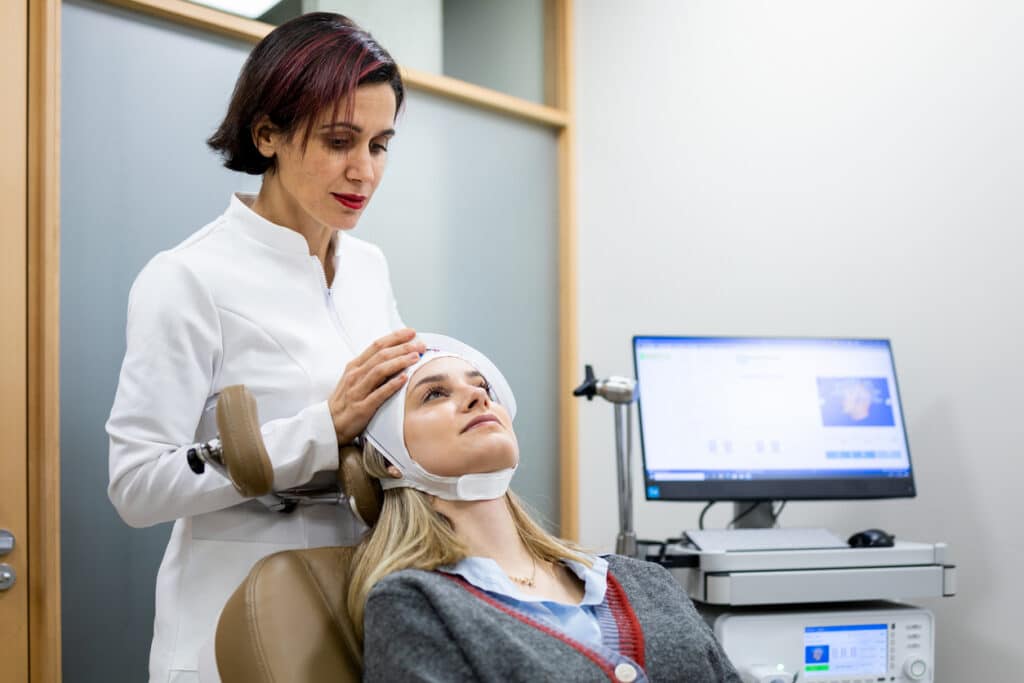By Melissa Riddle Chalos
There’s nothing like a full-on, worldwide pandemic to bring life as we know it to a crashing, hard stop. We were moving along at a nice clip, working our jobs, going to school, raising our families and then, boom! The entire world stopped on a dime.
Since March of 2020, we’ve all been forced to slow down, socially distance, stay home and figure out new ways of managing the essentials in our lives. The pandemic upended everything: how we work, eat, sleep, exercise, educate, and entertain ourselves as well as how we interact and connect with our families and friends.
In a recent New York Times article, Yale psychology professor and “The Science of Well-Being” teacher Laurie Santos says, “COVID-19 was an awful time for many of us. There’s lots of evidence for what’s called post-traumatic growth — that we can come out stronger and with a bit more meaning in our lives after going through negative events. I think we can all harness this awful pandemic time as a time to get some post-traumatic growth in our own lives.”
Maybe life after COVID-19 is the once-in-a-lifetime opportunity to work toward a life reset — to dig in and experience the post-traumatic growth we all need — to be the healthiest in mind, body, and spirit that we’ve ever been.
Maybe life after COVID-19 is the once-in-a-lifetime opportunity to work toward a life reset — to dig in and experience the post-traumatic growth we all need — to be the healthiest in mind, body, and spirit that we’ve ever been.
Mental Growth and Resetting Your Life
So, what might it look like to really hit the reset button? First and foremost, a fresh start requires you to think intentionally about your priorities and what matters most to you in life. It also means a shake-up of old routines and patterns with new choices, new perspectives, and new routines.
It’s the realization that change — even change that results from a seismic shift or traumatic event or season in your life — can produce positive growth. And that change can begin with you.
Perhaps Austrian psychiatrist Viktor Frankl said it best: “When we are no longer able to change a situation, we are challenged to change ourselves.”
The positive psychological change that is experienced as a result of life’s struggle with challenging circumstances is essentially the definition of post-traumatic growth, a term first coined by doctors Richard Tedeschi and Lawrence Calhoun.
Tedeschi and Calhoun identified seven areas of growth that often spring from adversity:
- Greater appreciation of life
- Greater appreciation and strengthening of close relationships
- Increased compassion and altruism
- The identification of new possibilities or a purpose in life
- Greater awareness and utilization of personal strengths
- Enhanced spiritual development
- Creative growth
To experience this kind of resilience, however, requires intention and the willingness to rethink how we see ourselves, our relationships and our life circumstances.
In the book, What Happened to You: Conversations on Trauma, Resilience and Healing, trauma expert Bruce Perry, MD, Ph.D., and Oprah Winfrey look at the science and emotion involved in our behavior and responses, shifting the focus from self-blame and judgment to understanding how our past informs our present.
Winfrey says Perry’s perspective on trauma changes the way we see our lives: “Through this lens, we can build a renewed sense of personal self-worth and ultimately recalibrate our responses to circumstances, situations, and relationships. It is, in other words, the key to reshaping our very lives.”
To begin the process of post-traumatic recovery and healing, we have to tap into the thoughts and feelings we’ve internalized about difficult or traumatic events in our lives and look for the transformational value in them. Exploration — instead of avoidance — can lead to the discovery of strength and even the ability to accept and find meaning in the hard seasons of life.
Steps like these go against our natural bent to avoid uncomfortable emotions, but as a groundbreaking psychologist, Scott Barry Kaufman wrote in Transcend; The New Science of Self-Actualization: “It’s only through shedding our natural defense mechanisms and approaching the discomfort head-on, viewing everything as fodder for growth, that we can start to embrace the inevitable paradoxes of life and come to a more nuanced view of reality.”

Recovery and Resilience
Resilience is within you, even emerging bit by bit out of the fog of a pandemic. Sometimes it just needs a little help to reach the surface. Thankfully, there are professionals with the right tools standing by ready to help you get it.
Rio Retreat Center at The Meadows offers a wide range of workshops and private intensives to help you achieve post-traumatic growth wherever you are on your own unique journey. If you are ready to hit the life reset button or need help in trauma recovery, one of these workshops could be right for you:
To begin the process of post-traumatic recovery and healing, we have to tap into the thoughts and feelings we’ve internalized about difficult or traumatic events in our lives and look for the transformational value in them.
Mind & Heart
Perfect for anyone with a history of addictive behaviors, perfectionism, people-pleasing, avoidance, or anger, Mind & Heart explores how trauma, abuse, betrayal, disappointment, loss, and grief can leave us feeling stuck. Here, you’ll gain practical tools to move beyond unhealthy coping methods and establish better ways of relating to difficult situations and people.
THRIVE: Living an Actualized Life
THRIVE: Living an Actualized Life is a personal growth workshop that offers action-oriented processes for post-traumatic growth and recovery focused on releasing old patterns and worn-out roles and embracing new ones.
As the world is waking up to life after COVID-19, we all have the chance for a better, mentally healthier, trauma-healing future. Turn the page on a new chapter in your life and you will find new strength, hope, and healing awaits.



